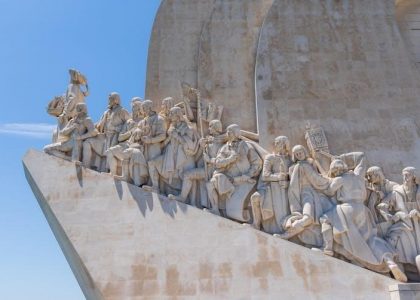The Twelve Tribes of Israel, descended from Jacob’s twelve sons, form the foundation of the Israelite nation․ Each tribe’s name carries profound spiritual and prophetic meaning, reflecting divine purpose and character․ These names, rooted in Hebrew tradition, encode the Gospel story, offering insights into God’s plan and the identity of His people․ The tribes symbolize unity in diversity, embodying the covenant promises of God․

Overview of the Twelve Tribes and Their Significance
The Twelve Tribes of Israel, descended from Jacob’s twelve sons, are central to the biblical narrative and hold profound spiritual significance․ Each tribe’s name, deeply rooted in Hebrew language and culture, carries unique prophetic and symbolic meaning․ These names not only reflect the character and destiny of the tribes but also encode the story of the Gospel, revealing God’s divine plan․

The tribes emerged as distinct groups within the Israelite nation, each contributing to the rich tapestry of God’s people․ Their names, often tied to specific events or divine promises, serve as reminders of God’s faithfulness and covenant with Israel․ For instance, Reuben, Simeon, and Levi, the first three tribes, reflect themes of divine seeing, hearing, and joining, respectively, setting the stage for the unfolding narrative of redemption․
The prophetic significance of the tribes’ names becomes evident when their meanings are examined collectively․ When read in sequence, they reveal a cohesive story of sin, redemption, and restoration, mirroring the Gospel message․ This encoding underscores the unity and purpose of God’s plan, demonstrating how each tribe plays a vital role in the larger story of salvation․
Beyond their symbolic meanings, the Twelve Tribes represent the diversity and unity of God’s people․ Despite their distinct identities, they are bound together by a shared heritage and covenant, symbolizing the ultimate unity of all believers under God․ The study of their names and meanings offers profound insights into the biblical narrative, emphasizing God’s sovereignty and love for His people․
The significance of the Twelve Tribes extends beyond ancient Israel, resonating with believers today․ Their names and stories serve as a reminder of God’s faithfulness and the enduring nature of His promises, inviting reflection on the deeper spiritual truths embedded in Scripture․
The Biblical Context of the Tribes
The Twelve Tribes of Israel are deeply rooted in the biblical narrative, tracing their origin to the patriarch Jacob, whose name was changed to Israel in Genesis 32:28․ The tribes are descended from Jacob’s twelve sons, each becoming the patriarch of a distinct group within the Israelite nation․ The Bible frequently references these tribes, with their names appearing in genealogies, historical accounts, and prophetic writings․
The biblical context of the tribes is first established in Genesis, where the stories of Jacob’s sons lay the foundation for the Israelite identity․ The names of the tribes are often tied to specific events or divine promises, reflecting the circumstances of their births or the character of their fathers․ For example, Reuben, the firstborn, signifies “Behold, a son,” while Judah’s name means “Praise,” symbolizing Leah’s gratitude to God․
The tribes are listed in various parts of the Bible, including Numbers, Deuteronomy, Joshua, and Ezekiel․ These listings serve both historical and symbolic purposes, emphasizing the unity and diversity of the Israelite people․ In some cases, the tribes are grouped or rearranged to highlight specific themes, such as the priesthood (Levi) or leadership (Judah)․ The biblical context also highlights the tribes’ roles in the wilderness journey, the conquest of Canaan, and their eventual dispersion․
The New Testament further underscores the significance of the tribes, with references in the Gospels and Revelation․ Jesus’ ministry is often seen as a fulfillment of the promises made to the tribes, while the 144,000 sealed from each tribe in Revelation symbolize God’s ultimate restoration of His people․ This enduring biblical context underscores the tribes’ importance in understanding God’s plan and the identity of His covenant people;
Through their names and narratives, the Twelve Tribes of Israel embody the story of redemption, illustrating God’s faithfulness and the unfolding of His divine plan․ Their biblical context provides a rich tapestry of history, prophecy, and spiritual meaning, inviting readers to explore the deeper significance of their roles in Scripture․

Historical Background of the Twelve Tribes
The Twelve Tribes of Israel trace their lineage to Abraham, the first Hebrew, and his grandson Jacob, whose twelve sons became the patriarchs of the tribes․ Originally known as Hebrews, they evolved into a distinct nation through Jacob’s descendants․ The tribes grew in significance during their time in Canaan and Egypt, eventually forming the backbone of the Israelite identity․ Their history is intertwined with the biblical narrative, shaping their cultural and religious heritage․
The Origin of the Twelve Tribes

The origin of the Twelve Tribes of Israel is deeply rooted in the biblical account of Jacob, whose name was later changed to Israel by God․ Jacob, the son of Isaac and grandson of Abraham, had twelve sons, each of whom became the patriarch of a distinct tribe․ These sons were Reuben, Simeon, Levi, Judah, Dan, Naphtali, Gad, Asher, Issachar, Zebulun, Joseph, and Benjamin․ Their births are detailed in the book of Genesis, with each son’s name carrying specific meanings that reflected their circumstances or the hopes of their mothers, such as Leah’s desire for love or Rachel’s longing for children․
The tribes were not merely biological descendants but were divinely ordained to form a unified nation under God’s covenant․ The process of their formation began with Abraham, who was called by God to be the father of a multitude․ This promise was passed down to Isaac and then to Jacob, whose twelve sons fulfilled the divine plan to establish a holy people․ The unique characteristics and roles of each tribe were further defined as they grew and developed, eventually becoming central to the structure of ancient Israelite society․
The origin story also highlights the significance of each tribe’s name, as they often encoded prophetic messages or spiritual truths․ For instance, Judah’s name, meaning “praise,” foreshadowed his role as the tribe from which Jesus Christ would descend․ Similarly, Levi’s name, signifying “attachment,” reflected the tribe’s eventual priestly role․ These names were not random but were imbued with divine purpose, setting the stage for the tribes’ historical and spiritual journeys;
Jacob and the Naming of the Tribes
Jacob, whose name was later changed to Israel by God, is central to the origin of the Twelve Tribes․ His twelve sons, born to four different mothers—Leah, Rachel, Bilhah, and Zilpah—each received names that carried deep meaning and significance․ These names were often chosen by their mothers, reflecting their personal experiences, emotions, or divine intervention․ For instance, Reuben, the firstborn, was named by Leah, who exclaimed, “See, a son!” expressing her hope for love and recognition from Jacob․ Similarly, Simeon’s name, meaning “Heard,” reflected Leah’s prayer for divine hearing and acknowledgment․
Jacob’s role in naming the tribes extended beyond mere labeling; it was an act of imparting identity and purpose․ Each name was rooted in Hebrew language and culture, often encoding prophetic or spiritual truths․ For example, Judah, meaning “Praise,” was named by Leah in recognition of God’s goodness, while Joseph, meaning “He Will Add,” was named by Rachel in hope of further blessings․ These names not only reflected the circumstances of their births but also foretold the destiny of each tribe․
The process of naming the tribes was deeply personal and spiritual, guided by divine providence․ Jacob’s interactions with God, particularly his transformative experience in Genesis 32, where his name was changed to Israel, underscored the sacred nature of his role as the patriarch․ The names he and his wives chose for their sons became a testament to God’s faithfulness and the unfolding of His covenant promises․ These names would later shape the identity, roles, and prophetic significance of the tribes in Israel’s history․

Spiritual Meanings of the Twelve Tribes
The Spiritual Meanings of the Twelve Tribes are profound, with each name encoding divine truths․ Rooted in Hebrew, these names reveal God’s character and purpose․ From Reuben to Benjamin, each name reflects a unique aspect of God’s plan, collectively forming a narrative that points to redemption and the Gospel story․

Prophetic Significance of the Tribal Names
The prophetic significance of the tribal names is deeply rooted in their Hebrew meanings, which collectively reveal a divine narrative․ Each name, given by Jacob to his sons, carries a specific prophetic message that contributes to the larger story of God’s plan․ For instance, Reuben, meaning “Behold, a son,” signifies divine sight and grace, while Judah, meaning “Praise,” points to the ultimate praise of God through the Messiah․ These names, when translated and understood, form a cohesive message that encapsulates the Gospel story․
The tribal names are not merely labels but prophetic declarations․ They reflect the character of God, the destiny of His people, and the unfolding of redemption․ For example, Levi, meaning “Attached” or “Joined,” symbolizes the priestly role of the tribe in connecting God and His people․ Similarly, Joseph, meaning “He will add,” foretells the abundance and restoration that God would bring through his lineage․ Each name serves as a piece of a puzzle, fitting together to reveal the divine plan․
The prophetic significance extends beyond individual meanings, as the names collectively point to the Messiah․ The tribes’ names, when read in sequence, tell the story of sin, judgment, and ultimate redemption through Christ․ This encoded message underscores the unity of Scripture and the fulfillment of prophecy in Jesus․ Understanding these names deepens one’s appreciation for the biblical narrative and the profound wisdom embedded in the Twelve Tribes of Israel․
The Gospel Story Encoded in the Names

The names of the Twelve Tribes of Israel are more than just labels; they encode the Gospel story in a profound and intricate way․ When translated and understood, these names reveal a sequential narrative that points to the life, death, and resurrection of Jesus Christ․ This divine encoding is one of the most remarkable aspects of the biblical text, showcasing God’s foreknowledge and the unity of Scripture․
The tribal names are arranged in a specific order, each contributing to the overarching story of redemption․ For example, Reuben, meaning “Behold, a son,” signifies the revelation of the Son of God․ Simeon, meaning “Hearing,” points to the hearing of God’s Word and the response of faith․ Levi, meaning “Attached,” symbolizes the union between God and humanity․ Judah, meaning “Praise,” foretells the ultimate praise of God through the Messiah․ These names, when read in sequence, form a theological tapestry that unfolds the Gospel message․
The names also reflect the journey of redemption, from sin to restoration․ Dan, meaning “Judge,” signifies the divine judgment upon sin, while Naphtali, meaning “Wrestling,” represents the spiritual struggle and eventual victory through Christ․ Gad, meaning “Troop” or “Army,” symbolizes the divine army that overcomes evil․ Asher, meaning “Happy,” points to the joy and peace found in God’s presence․ Each name builds upon the previous, creating a seamless narrative of salvation․
The Gospel story encoded in the names of the Twelve Tribes is a testament to the Hebrew Bible’s deep theological richness․ It invites believers to explore the names with fresh eyes, uncovering the hidden layers of meaning that point to the Messiah․ This ancient wisdom continues to inspire and deepen the faith of those who study it, revealing the timeless plan of God․





